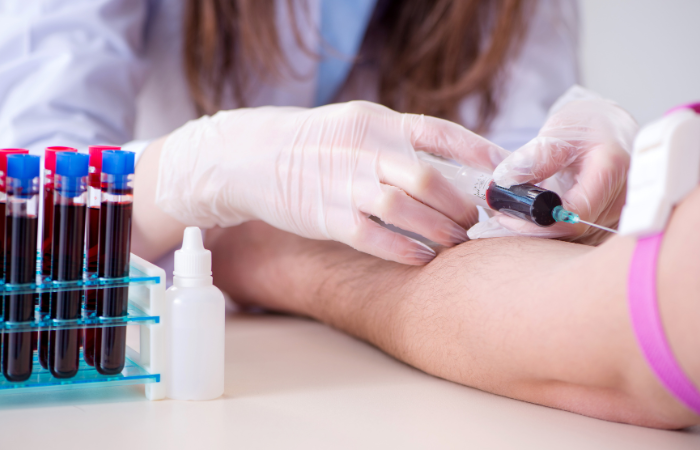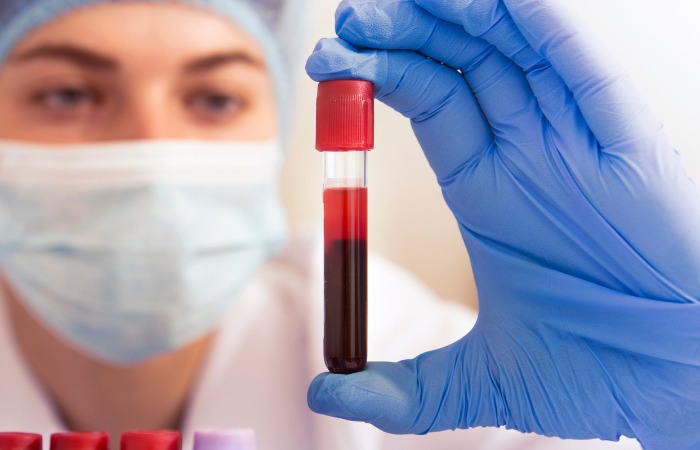
Maintaining a healthy heart is essential for overall well-being, and one of the most effective ways to monitor your heart’s health is through regular blood tests. Blood tests can help detect early signs of heart disease, high cholesterol, or other conditions that may affect cardiovascular health. In this blog, we will explore the top blood tests that play a crucial role in assessing heart health and why you should consider them as part of your regular check-up routine.
A lipid profile test is one of the most common blood tests used to measure cholesterol levels in your blood. This test measures Total cholesterol – the overall cholesterol in your blood. Low-density lipoprotein (LDL) – often referred to as "bad cholesterol," which can build up in the walls of your arteries and lead to plaque formation. High-density lipoprotein (HDL) – known as "good cholesterol," which helps remove LDL cholesterol from the bloodstream. Triglycerides – another type of fat in the blood that can increase the risk of heart disease when levels are elevated. High levels of LDL cholesterol and triglycerides are associated with an increased risk of heart disease, while higher levels of HDL cholesterol are protective.
The hs-CRP test measures the level of C-reactive protein, a substance produced by the liver in response to inflammation. Chronic inflammation is believed to play a key role in the development of heart disease, as it can lead to damage in the blood vessels and arteries. Elevated hs-CRP levels may indicate an increased risk of heart disease, even in individuals with normal cholesterol levels.
The BNP test is used to measure the levels of BNP, a hormone released by the heart in response to heart failure or other cardiovascular conditions. Higher-than-normal BNP levels can indicate heart failure, helping doctors diagnose this condition in its early stages and prevent further complications.
A fasting blood glucose test measures the amount of glucose (sugar) in your blood after an overnight fast. High blood sugar levels are a significant risk factor for heart disease, especially if they indicate diabetes or prediabetes. By monitoring blood glucose levels, doctors can assess your risk of developing cardiovascular problems related to diabetes.

The homocysteine test measures the level of homocysteine, an amino acid in the blood. High levels of homocysteine are associated with an increased risk of cardiovascular diseases, including heart attack and stroke. Elevated homocysteine levels can damage the inner lining of arteries, making it easier for plaque to build up.
Kidney health is closely linked to heart health. The creatinine and estimated glomerular filtration rate (eGFR) tests help assess kidney function. Poor kidney function can contribute to high blood pressure and fluid retention, both of which can strain the heart. Monitoring kidney function is crucial for preventing heart-related complications.
An electrolyte panel tests the levels of important electrolytes like sodium, potassium, and calcium. Imbalances in these electrolytes can affect heart rhythm and function. A blood test that evaluates electrolyte levels can help identify any disturbances that may be affecting your heart’s electrical system.
Regular blood tests are an effective way to assess and monitor your heart health. The tests mentioned above can help detect risk factors early, allowing you to take proactive measures to prevent heart disease. Maintaining a healthy lifestyle with proper nutrition, exercise, and regular health check-ups is essential for your heart's longevity.
At Diagnopein Diagnostics, we offer comprehensive blood tests to monitor your heart health and detect potential issues early. Our advanced diagnostic tools and expert medical team ensure accurate and timely results. We are committed to providing affordable and reliable healthcare services to help you maintain a healthy heart.
Contact Diagnopein Diagnostics today to schedule your heart health check-up and stay proactive about your cardiovascular health!

